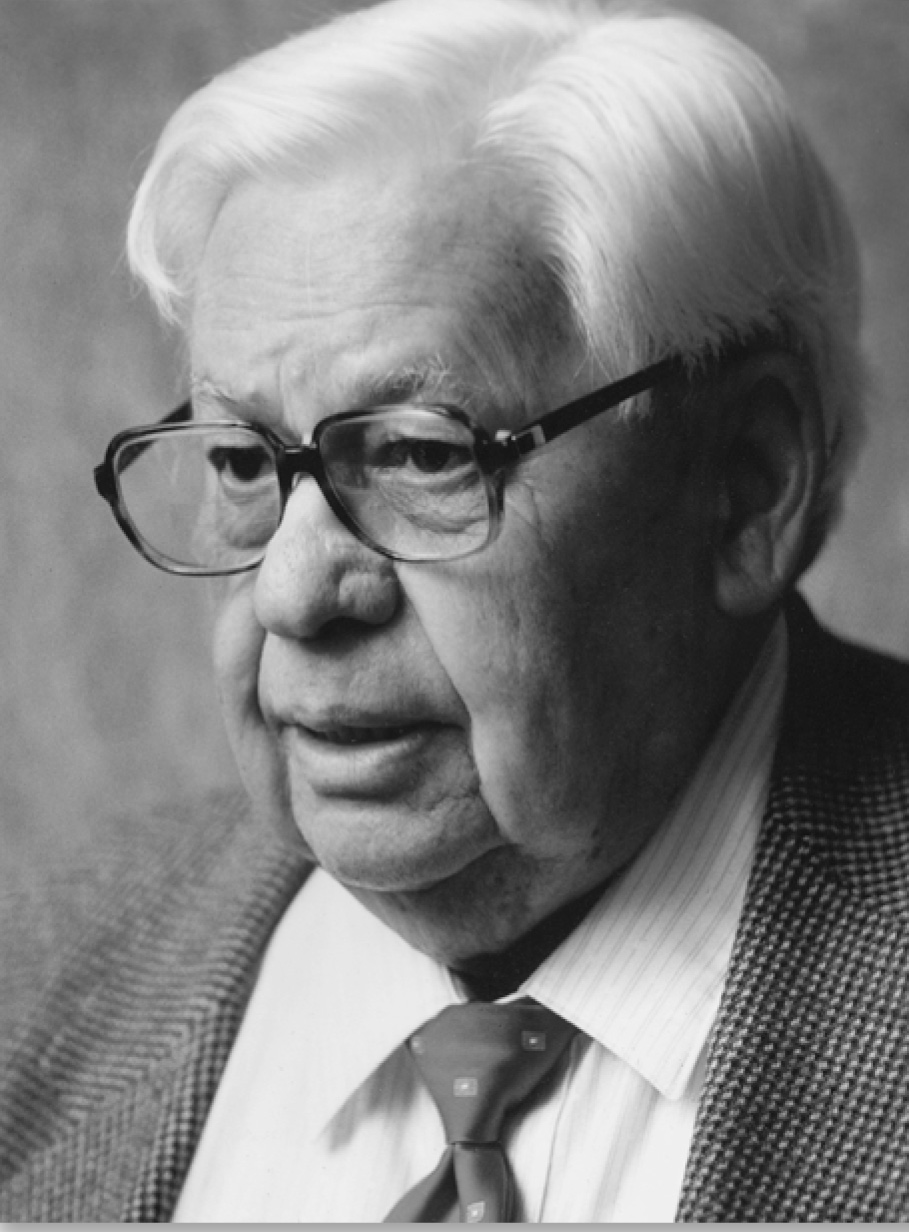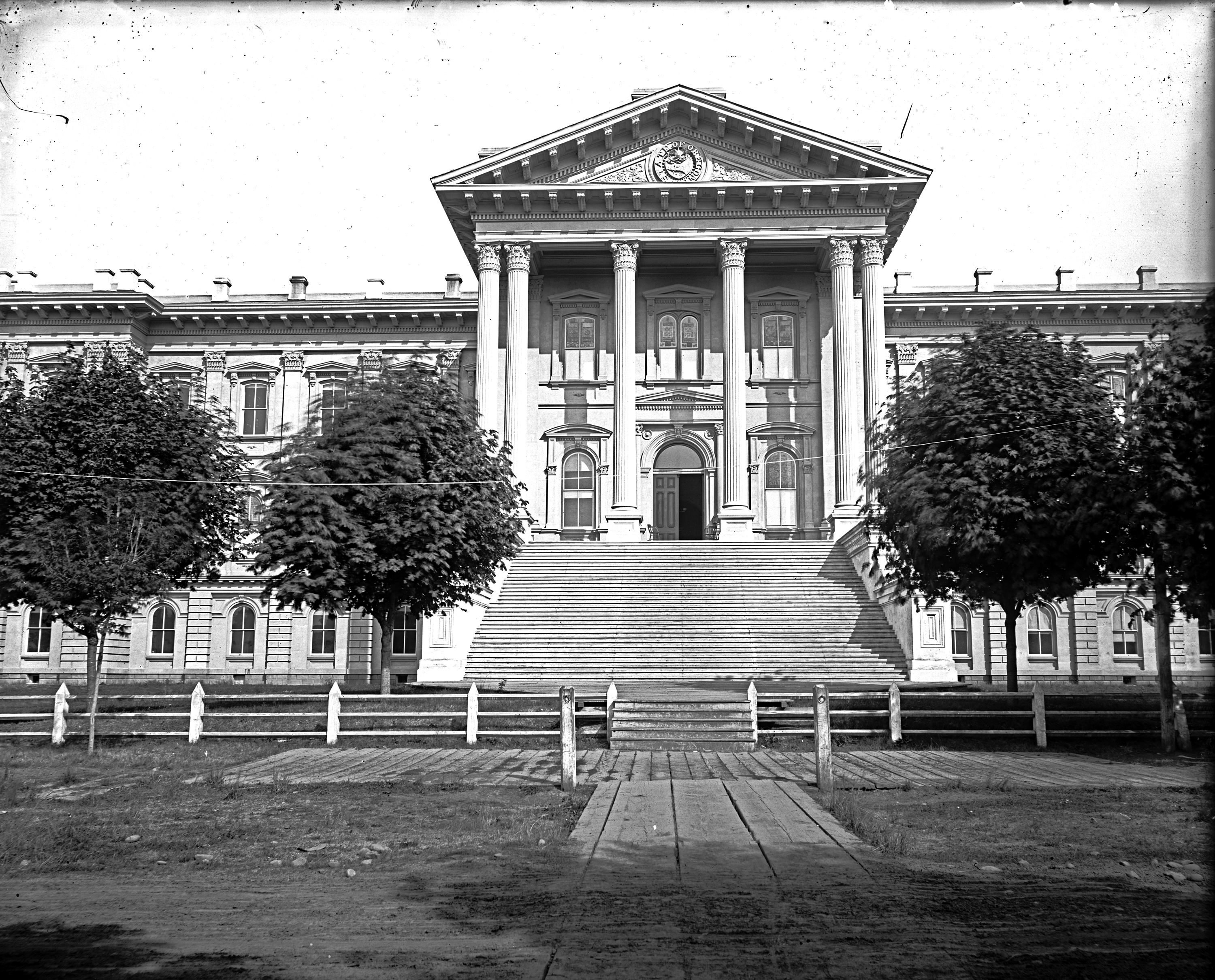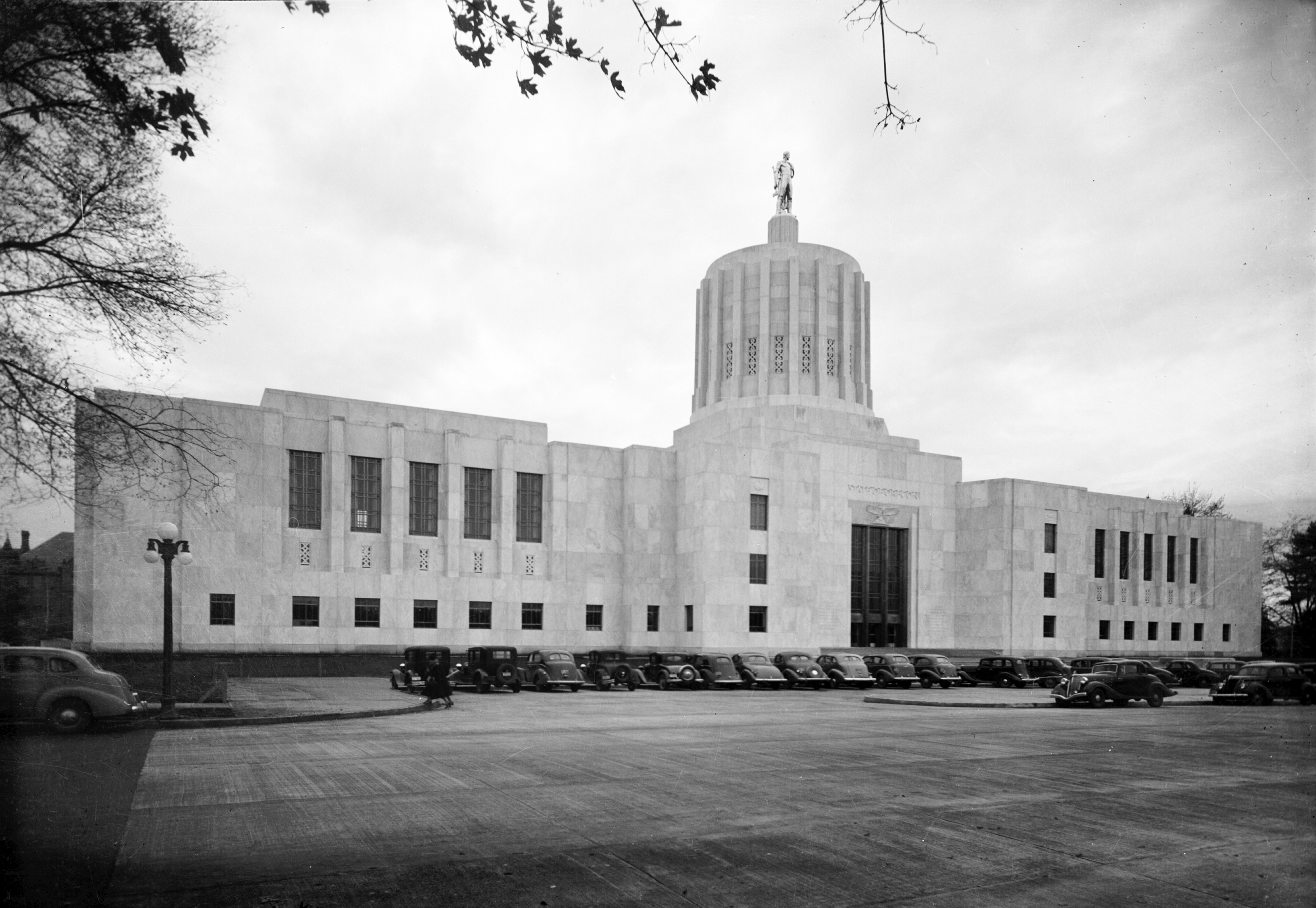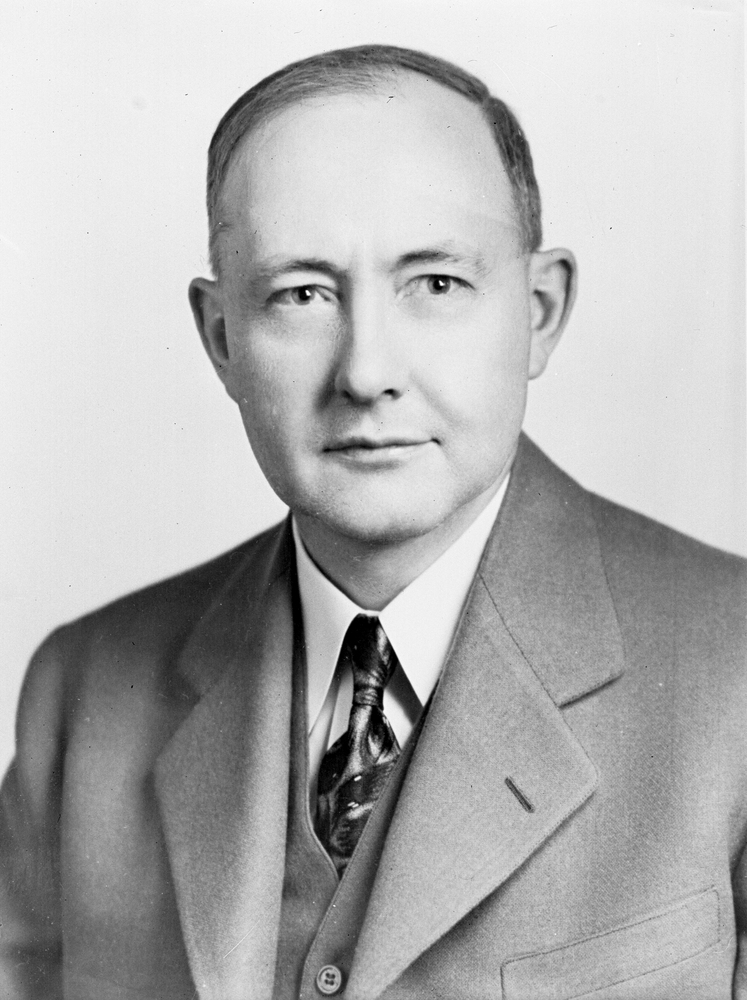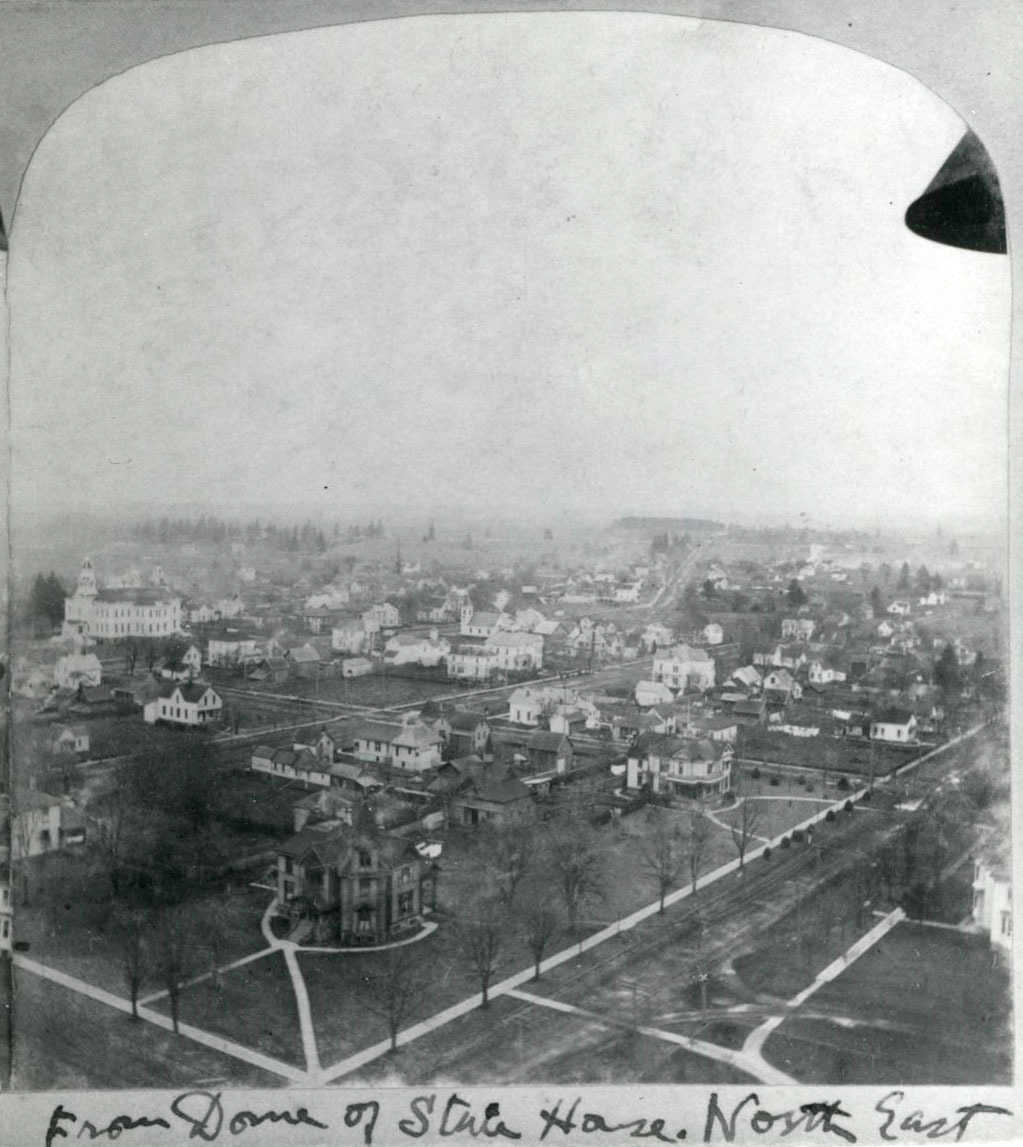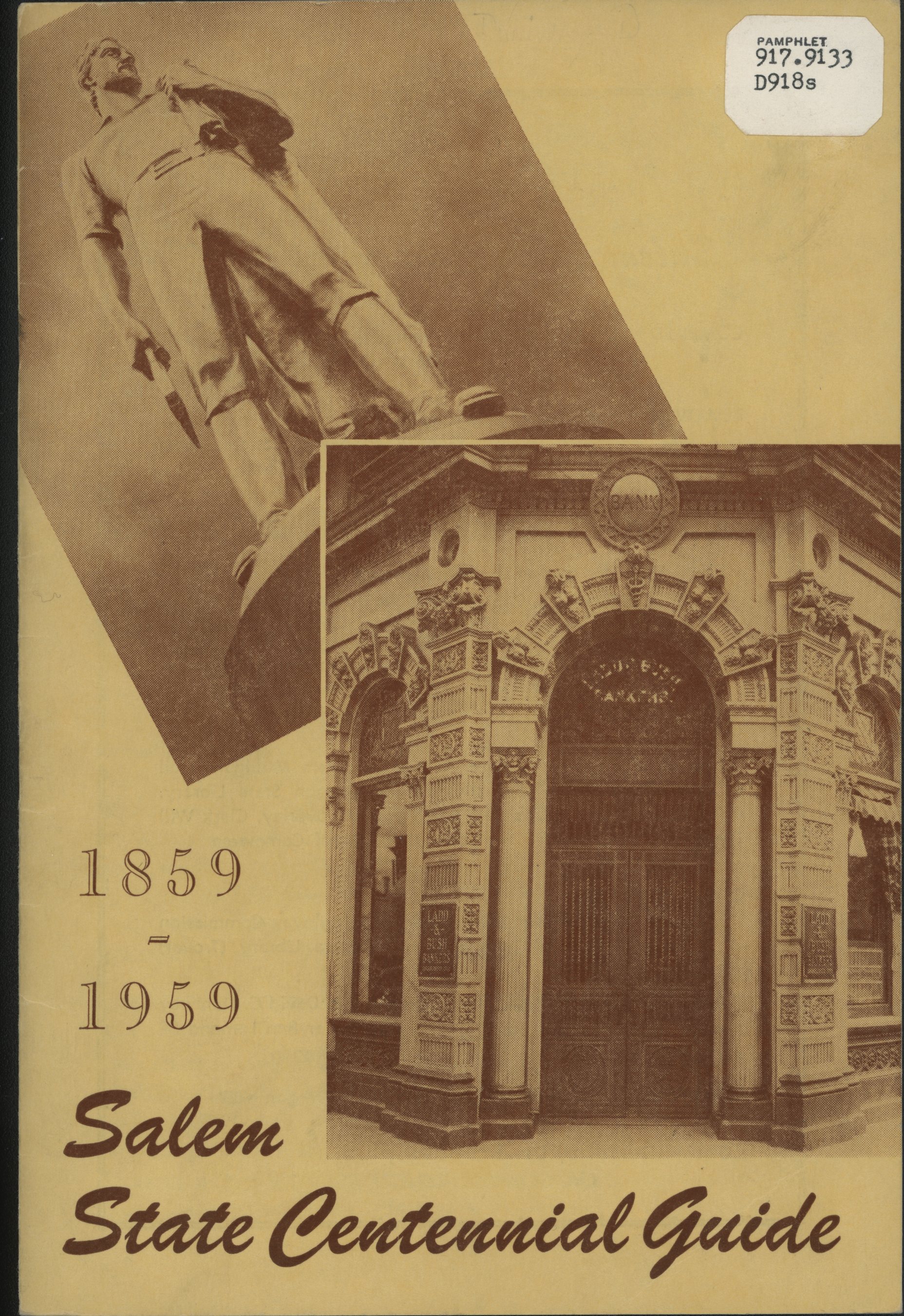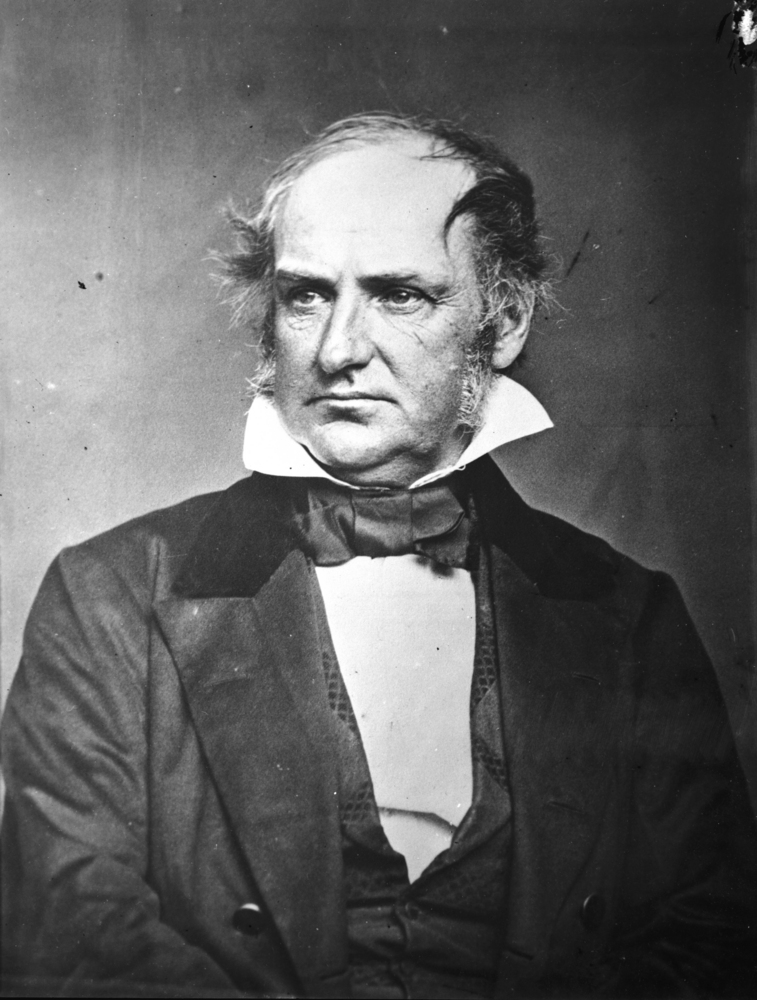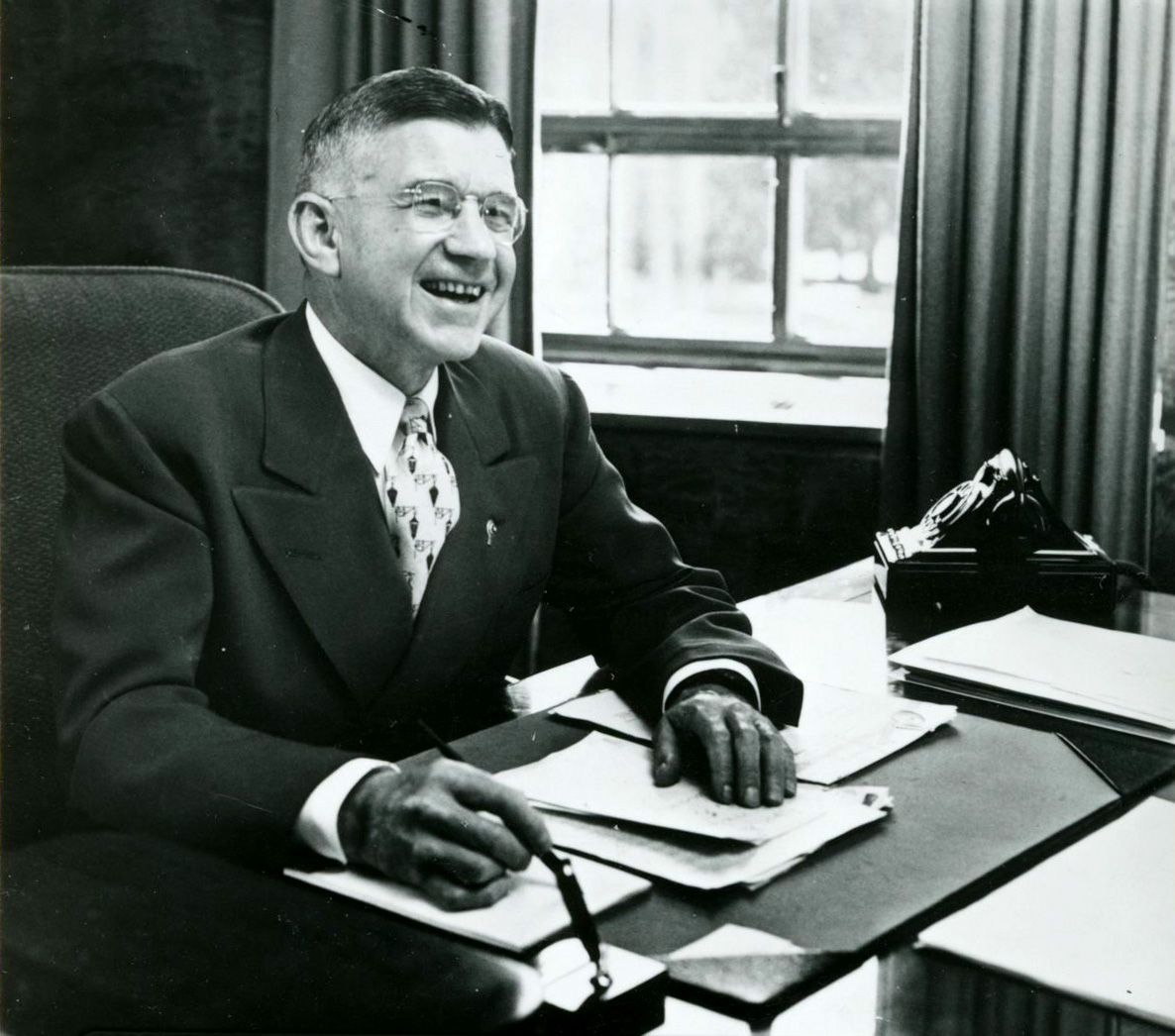When Cecil Edwards became Oregon’s first legislative historian in 1976, he told the Statesman Journal that his “insatiable curiosity for gossip, rumors and oddities led to his study of history, with leanings toward Oregon government.” Edwards held the appointment for eighteen years, until 1993, when he retired from a career that spanned six decades, fifteen governors, and over forty legislative sessions. The Cecil L. Edwards Archives Building in Salem is named in his honor.
Cecil Edwards was born in Salem on November 20, 1906, to Arthur and Mary Jane (Greene) Edwards. After graduating from Salem Senior High School in 1925, where he was student body president, he sold men’s clothing, raised thoroughbred horses on his farm in Turner, and sold cars at McKay Chevrolet in Salem, which was owned by future Oregon governor and U.S. Secretary of the Interior Douglas McKay.
Edwards began working for state government in 1933 when he became the secretary for Oregon Representative Otto K. Paulus. In 1938, Edwards campaigned for Statesman Journal publisher Charles Sprague, who was running for governor. After Sprague won the race, the new governor hired Edwards as his private secretary and arranged for him to serve on the Oregon Parole Board.
In 1941, Edwards, a member of the U.S. Army Reserve, resigned from his position with the governor when he was called to active duty. Because of his background with horses, he was assigned to the Pomona Remount Depot in California, the army’s animal training facility. There, he trained mules as pack animals, horses for soldiers to ride into difficult-to-reach battlefields, and thousands of dogs to help hunt for enemy soldiers.
Edwards returned to Oregon in 1946, where he found that Douglas McKay was now governor. “McKay was a good friend of mine,” he later remembered, but “Tom McCall had my job” as secretary to that governor, “and that's pretty tough competition.” Again because of his experience with horses, the governor told him that “an opportunity was going to come up in the Racing Commission and would I care to…bide my time until that happened. That was agreeable with me and I worked as credit manager for Eyerly Aircraft during that brief period. They made amusement rides.”
Edwards was racing steward for the Oregon Racing Commission from 1951 until 1959, when he was dismissed. He later became secretary of the Oregon State Cattlemen’s Association where he edited the organization’s magazine, Oregon Cattleman, and was the association’s lobbyist until 1962. That year, he returned to state service as secretary of the Oregon Legislature Interim Committee on Agriculture. He was named chief clerk of the Oregon House of Representatives in 1963 and in 1965 became secretary of the Oregon Senate, a post he held until 1975. Describing himself as “an old livestock hand,” he told the Statesman Journal, he used “a sheep counter to record the votes.”
A year after Edwards retired in 1975, Jason Boe, president of the Oregon Senate, created the post of legislative historian specifically for Edwards, who had a consuming interest in Oregon history and a treasury of institutional knowledge that stretched back over forty years. When a lint fire closed the capitol on March 23, 1993, Edwards recalled that when the second Oregon capitol burned to the ground in 1935 he had “carried out typewriters and things, and put them in trucks and pickups…a great many records burned, and that’s why it’s pretty tough to be a historian on the legislature.”
As legislative historian, Edwards’s main duties were writing speeches for state officials, answering their queries about Oregon history, and responding to media requests for information. He was consulted on a range of topics that ran the gamut from the serious to the curious. He answered questions, for example, about the passage of the recall system and the history of conditions in the state prison system. But he also researched the history of the carpets in the Senate chambers and attempted to identify the subject of a bronze sculpture found in a junk pile at the Oregon State Hospital.
Sometimes his job led to unusual discoveries. In 1979, the owner of a pet cemetery in Couma, California, found U.S. Senator Edward D. Baker’s marble monument which had been left behind when Baker’s gravesite was relocated to San Francisco’s National Cemetery in 1940. Would Oregon like to have it? Baker, for whom Baker County is named, was serving as Oregon’s senator when he was killed at the Battle of Ball’s Bluff in 1861, the only serving member of Congress to perish in Civil War combat. His widow had resisted pleas by Oregonians to have him buried in Salem instead of California. Edwards recognized the opportunity to bring the memorial “home” to Oregon, and so called the owner, settled on a price, and arranged for state legislator Eugene “Debbs” Potts of Grants Pass to drive his flatbed pickup to Couma to collect the monument. The two men then delivered it to Baker County, where it is now on display at the courthouse.
In 1993, Oregon State Representative Peter Courtney sponsored a bill to name the state archives building for Edwards. “I told him, anything we could do to enhance the image of the building, we should do so,” Courtney joked. The legislature passed the bill unanimously. When Edwards resigned a few months later, the position was closed and has never reopened.
Cecil Edwards died in Salem in December 1995. He is buried in Salem’s City View Cemetery.
-
![]()
Cecil Edwards.
Courtesy State of Oregon -
![Oregon State Capital Building, Salem.]()
Salem, capitol bldg, 0173 G 047.
Oregon State Capital Building, Salem. Oreg. Hist. Soc. Research Lib., 0173 G 047
-
![North front of the State Capitol, Salem, soon after the building was occupied, 1938-1939.]()
Salem, Capitol, new, OrHi 18035.
North front of the State Capitol, Salem, soon after the building was occupied, 1938-1939. Oreg. Hist. Soc. Research Lib., OrHi 18035
Related Entries
-
![Charles Sprague (1887-1969)]()
Charles Sprague (1887-1969)
Charles A. Sprague published and edited The Oregon Statesman for forty …
-
![City of Salem]()
City of Salem
Salem, the capital of Oregon, is located at a crossroads of trade and t…
-
![David C. Duniway (1912-1993)]()
David C. Duniway (1912-1993)
David C. Duniway was the first Oregon State Archivist and a champion fo…
-
![Edward Baker (1811-1861)]()
Edward Baker (1811-1861)
Edward "Ned" D. Baker, who was born in London, England, on February 24,…
-
![James Douglas McKay (1893-1959)]()
James Douglas McKay (1893-1959)
Douglas McKay, a conservative Republican, was governor of Oregon from 1…
-
![Oregon State Capitol]()
Oregon State Capitol
Among capitol buildings in the United States, the Oregon State Capitol …
Map This on the Oregon History WayFinder
The Oregon History Wayfinder is an interactive map that identifies significant places, people, and events in Oregon history.
Further Reading
Auel, Lisa B. "Buddies: Soldiers and Animals in World War II." Prologue Magazine 28.3 (Fall 1996).
"Locals." Salem Capital Journal, May 3, 1946. p.11.
"Cecil Edwards is New Race Steward." Salem Capital Journal, March 29, 1951, p.13.
"Cecil Edwards Appears Out Of Racing Job." Salem Statesman Journal, Debruary 21, 1959, p.1..
"Session Opens Up Many Jobs for Assistants." Salem Statesman Journal, January 13, 1963, p.9
Bledsoe, Gloria. "The history bug has bit these six, and their friends may be next." Salem Statesman Journal, November 20, 1980.
Steves, David. "House OKs building name." Salem Statesman Journal, March 11, 1994.

